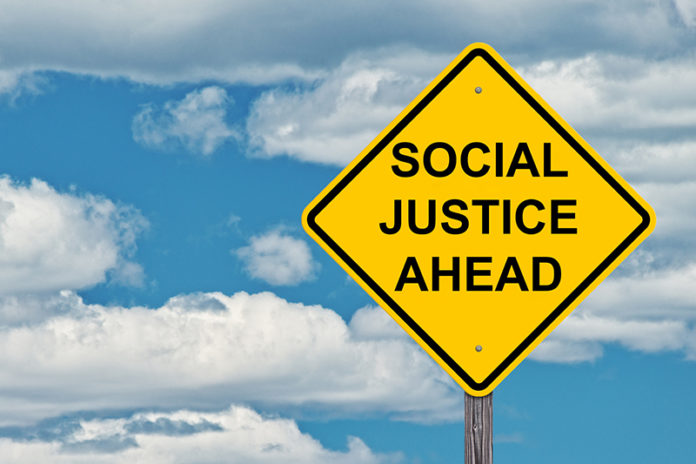The National Labor Relations Board wants to open the door to workplace activism, but winning its case against Whole Foods would tear that metaphorical door off its proverbial hinges.
Regulators accuse the upscale supermarket chain of violating federal labor law when it forbade employees from wearing Black Lives Matter face masks on the job. If courts uphold the agency’s broad interpretation, social and political messages could begin flooding America’s offices, factories, shops and restaurants — for better or worse.
Workers complained to the NLRB when Whole Foods imposed discipline for wearing masks, pins and other apparel adorned with Black Lives Matter logos in 2020. General counsel Jennifer Abruzzo says the message qualifies as communication about work-related issues that could lead to collective action, triggering a federal ban on union-busting.
Section 7 of the National Labor Relations Act gives employees the right to form labor groups, participate in collective bargaining and “to engage in other concerted activities for the purpose of collective bargaining or other mutual aid or protection.”
For most of its 86-year history, the law primarily prevented retaliation against workers for distributing union literature, circulating petitions or comparing notes with colleagues from other departments or divisions of the same company. Then came social media.
In 2011-12, a series of three memos from the NLRB’s acting general counsel established Section 7 as a trusty shield for workers who faced discipline for disparaging their employers on Facebook and Twitter. If a negative comment can be construed as a complaint about pay, benefits or working conditions, labor law precludes punishment no matter what the company handbook says.
While not all work-related Facebook drama is protected — after a September 2012 hearing, the board declined to overturn the firing of a car salesman who joked about a workplace accident — Section 7 is now understood to countenance a wide range of general criticism.
Openly dragging the boss may not put you on the fast track for a promotion, but it usually can’t get you fired or suspended.
Last month, the NLRB accused Whole Foods of interfering with workers’ protected concerted activity when it disciplined employees for wearing Black Lives Matter apparel.
Abruzzo, who President Joe Biden nominated to serve as the agency’s top labor law prosecutor, told Bloomberg Businessweek in an interview published Dec. 14 that Section 7 should be construed broadly to protect “social justice, economic justice, racial justice advocacy.”
Displaying the Black Lives Matter message is concerted activity, she said, because “the employer certainly can control whether people of color get harassed and discriminated against in the workplace.”
Yet BLM isn’t a rallying cry against worker discrimination. The nationwide movement to proclaim and affirm the value of Black lives is chiefly a protest against police shootings of African Americans. Unless Whole Foods managers are moonlighting as cops, Abruzzo’s reverse-engineered rationale strains credulity.
The Amazon-owned grocery chain is contesting regulators’ retaliation claims. In a Dec. 17 filing with the NLRB, Whole Foods contends the agency’s general counsel is violating its First Amendment rights by forcing it to allow political activism on the clock and diluting its trademarks by creating an exemption from store dress codes.
Phrases like Black Lives Matter, the company’s filing says, “are not objectively understood to relate to workplace issues or improving working conditions at WFM’s retail grocery stores.” And no matter how pro-BLM or how sympathetic to the store employees you may be, it’s tough to argue that logic.
Whole Foods might take a hit in public relations, but if it prevails, every American company will owe it a debt of gratitude for keeping the camel’s nose out of the tent. Abruzzo doesn’t seem to understand where her tolerance for social commentary in the checkout line inevitably leads.
If Black Lives Matter qualifies as work-related speech, good luck excluding the “blue lives” and “all lives” messages offered in retort. If “social justice advocacy” is protected concerted activity, then so is your most reactionary coworker’s critique of “wokeness” du jour.
Section 7 of the National Labor Relations Act keeps bosses’ worst impulses in check. But widening its scope enough to take in BLM will only serve to make culture wars a permanent fixture in the workplace.































